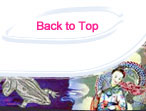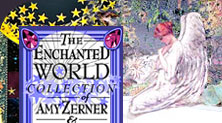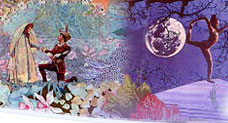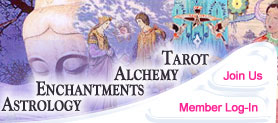 |
About Us


Don't Get Me Started - About Rap
|
I finally found a rap "music" song that actually stayed in my head longer than it took to suffer through it. Actually, the formerly hilarious comedian, Bill Maher's HBO TV show, "Real Time," has a theme song that I like, too. I'm sure rap "purists," if there are such things, wouldn't consider either of my choices rap music, but I started singing "Let's Get It Started" - that refrain is the whole song, IMHO - the morning after it got literally drummed into my head at the spectacular bar mitzvah of Dylan and Jake Pulver, two of the finest young men it has been my privilege to know.
They like rap music and I like them so I thought I'd revisit my revulsion about this "artistic genre," what I, as a former professional musician consider to be in large part a vast wasteland of talentless but clever criminals who'd figured out a way to launder their ill-gotten gains and become celebrities doing it. I believe this to be true because I know it to be true. I recorded one of my new age albums back in the day at a studio that catered at the time mainly to rap "artists." The owner of the studio told me that he was often paid in stacks of fives and tens, big, tall stacks because recording time in a studio is expensive. The rappers or their "producers" paid with money that was from the proceeds of drug sales, lots and lots of drug sales, and other criminal enterprises.
Money laundering with rap music works like this: You have your dirty money from drug sales and whatever else, but you can't spend it because where did you get it? Do you want to call attention to yourself? Did you pay taxes on it? Remember, that's what did in Al Capone, income tax evasion. So you either record yourself an album or you find a rapper who isn't a criminal but a poet of sorts and you record this artist's CD and get it into the stores using some of your cash. You then use the rest of your cash to buy the CD's from the stores you've placed them in, either working with a compliant record store or you have to send your friends in to buy the CD's. The stores pay you for the CD's with their checks and voilà, you now have income that is legitimately sourced and on which you can now pay taxes. Plus, if you've spent a lot of cash on a lot of CD's, your CD makes the charts and then it becomes a self-fulfilling prophecy because there's always enough people to join an established fad. The "success" of the CD and the "artist" gets the attention of the music publicity machine and the press and so on. And that's how drug money fueled and may still fuel many of the successful rap "artists." Now do you understand why some of them get killed like drug dealers do?
As a musician from the sixties and seventies, the connection between drugs and music was not unknown to me, far from it. I was appalled, however, that these musicians could not make music; these "artists" could not make any art. Instead, they did what many of them did best, they stole. In this case it was snippets of music from recordings made by actual musicians. They called it "sampling" but I call it stealing and many of them had to be hauled into court to pay the real musicians and songwriters. The most famous case and song I know of is "You Can't Touch This" by "MC" Hammer, the now preacher who made and subsequently squandered millions from his "song," the musical riff which gave it life being the main theme of the late, great, craziest person in the crazy music business, the misogynist Rick James' ultimate dance song "Super-freak." Rick James got paid by Hammer but I don't remember if that was before or after James started serious jail time for imprisoning a woman against her will, with a girlfriend as a co-conspirator. I don't say that all musicians are talented and noble, but at least they can play and some of them can write songs.
By a twist of fate, I happen to have been part of a most intimate audience for a group of young men who are considered to be one of the earliest of rap artists and these men were artists, poets actually. Their name was "The Last Poets" and they came into one of the classrooms at Barnard M. Baruch's old building back in the late sixties or early seventies - see, I told you the drugs/music connection was not unknown to me. I think there was three of them, though there may have been four. Four guys and a conga drum. They were mesmerizing, angry, accurate, and relevant. I was a musician then and I recognized that they were musicians. They were saying something and saying it in a musical way. I wish that were the case for rap music.
The day after Dylan and Jake's blowout "Let's Get It Started" quickly morphed into "Don't Get Me Started" when I thought about the rest of the song, which may have had wonderful lyrics but I couldn't remember anything because I hadn't heard anything worth remembering. But "Don't Get Me Started" was strangely satisfying sung to The Black Eyed Peas "music," helping me to smile and push away the craziness of my aunt Rose who's dying to be with my Uncle Morris, who appears in a previous blog, and so that usefulness and my admiration for the two young guys prodded my brain to stop reflexively hating rap music. If I was going to continue to hate it, I was going to understand it first. Here's what I've come up with so far:
Amy and I are always commenting that many of the greatest creative artists of our time have gone into advertising. You can see that some of the ads on TV are gorgeous works of art. Andy Warhol, not my favorite artist but an artist nonetheless and one whom I met a few times, started off as a graphic artist in advertising. The world of contemporary gallery art seems to me, for the most part, like a rickety ghost town of advertising with no products to sell. I call it The Emperor's New Art - like the fairy tale, there's nothing there but all the elite courtiers claim to be able to see it.
In a similar manner, just as creative people have chosen to make ads and not art because ads make you money and the art world ain't happening for the living (except for a handful of people), many young people today have hidden their smarts in memorizing rap music because they have unfortunately bought into the deadly error that being smart is not as cool as being a violent "gangsta" with lots of "bling" trashy jewelry and fast cars and loose women, "ho's," short for "whore." I'm now back to hating rap music. Its laundered drug money is used to sell this lie to an audience that is roughly seventy-five percent suburban kids who've never seen a ghetto and would literally be caught dead in one if they visited one and the other twenty-five percent of kids, those who are suffering the daily brutalities of actually living the reality of street crime, drugs, and prostitution, buy into this nightmare fantasy of a lie with their precious dollars because to not do so is a repudiation of their culture and their "hood."
All of these kids are loathe to show that they are smart because that ain't cool, though why they think that is beyond me with Bill Gate$ & Company as role models. So the young people can show how smart they are by learning and reciting along with the rappers their "lyrics," their complex rhymes done to sampled beats that unfortunately also beat down women, being smart, doing good, and - here's the real pity - beats down the race of these rappers.
The KKK could not design a better way to make intelligent, caring people believe that there is something "off" with any race or group of people that produces, condones, accepts and especially that glorifies the perpetrators of negative racial and sexual stereotypes. I believe that drugs are what you feed people you want to enslave by sapping their will power and I believe that rap music feeds into racial prejudices by supporting their veracity. I can say it that way and not fear reprisals because dumb people won't get it and smart ones will see that I'm correct.
Of course, rap music has a good beat and you can dance to it and that brings up another sublimated cultural imperative. So artists are in advertising and a young person's smarts dare only show their existence by remembering rap lyrics, rap music is also serving to substitute for the rituals of passage from childhood to young adulthood for both girls and boys. Our society has pretty much destroyed the rights of passage that used to be taken for granted by our not so distant ancestors. I wore my best folding knife to attend Jake & Dylan's bar mitzvah, but I didn't show it to anyone for fear of frightening them. To become a man means to learn the skills necessary to serve and protect your partner and children, if you decide that you want to bring a child into this crazy world. Yes, the bar mitzvah symbolized the passage into manhood and this used to mean gifts of weapons and fighting and hunting skills.
However, today most of the suburban young men into rap have not been hit by anyone, especially not by their parents and most likely haven't been in any real fights, so they get into rap music and defend it and the gangstas who rap it as their own, a poor substitute for being the strong men they want to be and know that they have to be. It's very sad to me. As the Raja Yoga saying goes, "Paper cakes don't satisfy hunger." These young men can be into rap music and fancy themselves "gangstas," but they're going to have to find other ways to go through their rite of passage to adulthood. I pray that they find it and that it doesn't involve binge drinking.
I was sickened to hear that one of the boys' favorite rap artists was Akon, a man who has already served five years in prison and who recently got thrown out of Trinidad for a simulated rape of a fifteen year old girl on the stage of a club that the government there subsequently closed. Verizon was using this thug as a spokesperson but dropped him when that story broke, just as Pepsi dropped rapper Ludicris for some outrage a few years ago. We're in a war for the survival of our way of life and I feel odd enough writing about rap music, but my visit to a suburban shul showed me that this horrible substitute for young people's rite of passage must be understood and confronted.
Women are not immune to rap's siren song. The beat is strong and real and gives them a chance to dance and show that they are talented dancers and up on the latest steps and that they are attractive - all of the functions of dance that women have used to their advantage since time immemorial. They can see how the boys dance and size them up a bit - it works both ways. And if rap is what's happening, then that is what they are going to have to make do with, even though it denigrates women in every way, shape and form. I feel sorry for the young women who must deal with the negative stereotyping of women in rap. Those that defend it have Stockholm Syndrome: They've bonded with their captors. The only good thing that I can see happening from it is that they may meet young men who see through rap "music" and its blatant sexism and therefore be attracted to these young wise men.
Paul Simon said that "Every generation throws a hero up the pop charts." I used to think he was right, but in the case of rap it seems that the rap generations - for it's been going on much longer than I would have thought it could ever go on - didn't even throw their anti-heroes up the pop charts. What they did throw up I can see and I think I understand a little, but I still don't like it one bit. Don't get me started, indeed!
|
|
|
  |
|
 |









